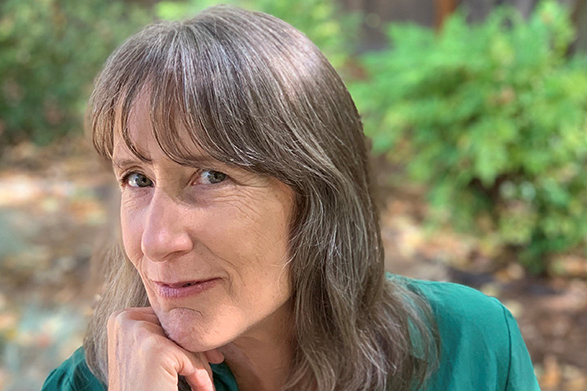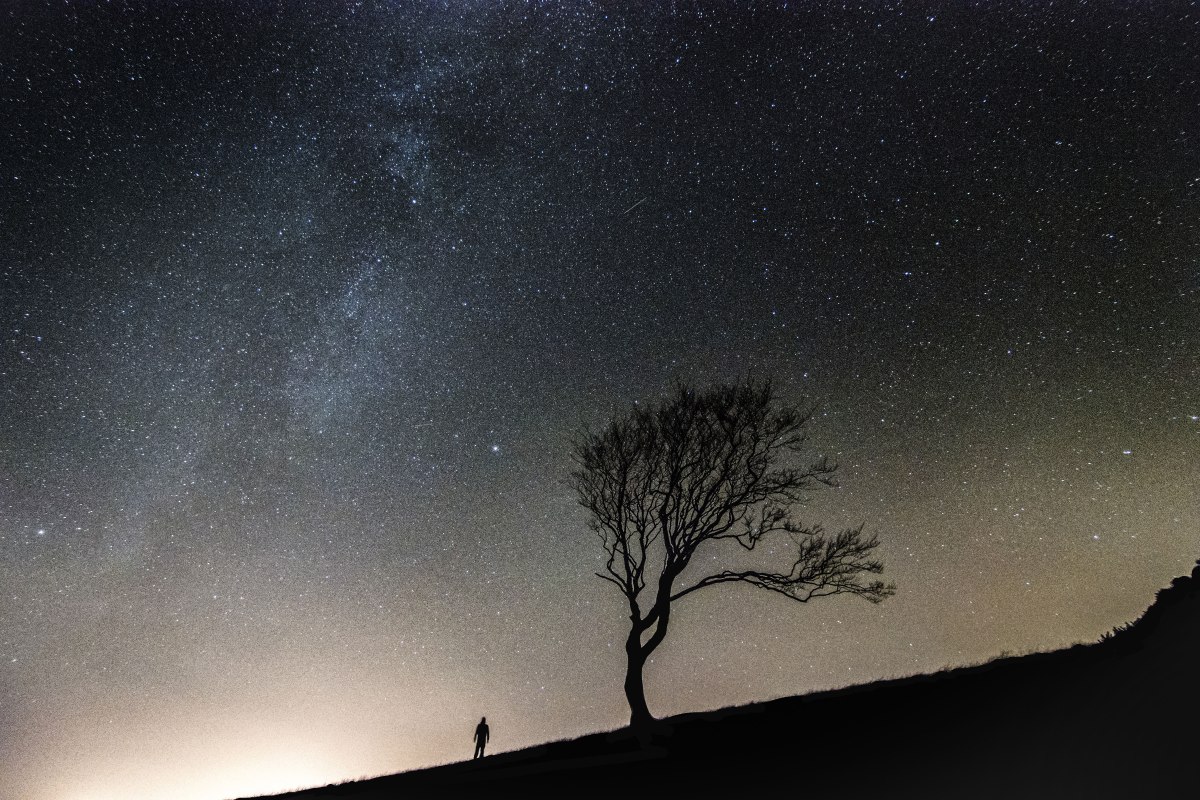See Monster!
SEE[ING] MONSTER[S] Billed as an “extraordinary act of collective creativity”, and one of ten projects which form part of the controversial Unboxed: Creativity in the UK, SEE MONSTER is conceived as a fusion of environmentalism, creativity, fantasy, and play. Standing 35 meters tall and weighing in at 450 tonnes SEE MONSTER sits in a shallow…
‘Build Back Better’: Narratives of Covid and Climate
Many commentators have argued that the Covid-19 pandemic, the climate emergency and the destruction of nature are inextricably linked. The virus has been seen as a last warning for society to change course, a harbinger of future crises to come, or the latest episode in an ongoing and escalating breakdown. More optimistically, the resulting pandemic has been interpreted as a moment of transformative change, an example of the speed at which nations can act…
Vigil: Coronavirus fiction?
The coronavirus pandemic has been reported extensively on TV news over the last eighteen months, but it is curious that it has not been examined more in TV drama. UK mainstream TV programmes such as Silent Witness and Vera, both of which returned to our screens over the last few weeks, have essentially ignored the pandemic. And in soaps, where the effects of coronavirus…
Introducing the Covid Future Narratives Project
Our Covid Future Narratives project starts with a question: how is coronavirus and the pandemic it has generated influencing the ways we imagine the future? We are collecting narratives produced across a range of genres during the last eighteen months that focus on imagining a post-pandemic future. Here we discuss a selection of those we have found so far, offering a sense of the people and genres engaged…
Two February events on Politics and the Environment
In February, the ScienceHumanities initiative will be co-hosting two events on the intersections between the environment and politics as part of its new Environmental Cultures strand. February 12th 2021, 2.00-5.00pm GMT, 3.00-6.00pm CET, Zoom — ‘Politicising Environments: a workshop on politics and the environment’ in association with our Fiction Meets Science colleagues at Universität Bremen.…
Cultural and Literary parallels between the Cholera and Coronavirus pandemics
In November 2020, the Cardiff ScienceHumanities initiative asked Aureo Lustosa Guerios to compare his research on ‘Cholera and the Literary Imagination in Europe, 1818 to 1930’ with the current pandemic. Aureo is in the final stages of his PhD project at the University of Padua, Italy. Many thanks to him for contributing his insights and…
Postponed: SCIENCEHUMANITIES IN ASSOCIATION WITH FICTIONS MEETS SCIENCE INTERNATIONAL SUMMER SCHOOL
This event was postponed due to the pandemic. We’ll be publishing details about a rearranged event soon. SCIENCEHUMANITIES IN ASSOCIATION WITH FICTIONS MEETS SCIENCE INTERNATIONAL SUMMER SCHOOL HWK Institute for Advanced Study (Hanse-Wissenschaftskolleg) | Delmenhorst GERMANY MONDAY 8 JUNE – FRIDAY 12 JUNE 2020 Keynote Speaker: Professor Heidi Hutner (Stony Brook) Seminars by leading figures…
Decolonising ScienceHumanities
The ScienceHumanities Summer School is currently underway in sunny Cardiff! Participants were challenged by Dr Josie Gill (University of Bristol) to consider the similarities and the differences between decolonisation movements and interdisciplinary working practices, asking in particular what the ScienceHumanities might learn from decolonisation? In response, the Summer School participants produced a manifesto and a…
Images of Research Award
Our very own ScienceHumanities Research Assistant, Cerys Knighton, has recently won the People’s Choice Award at the Cardiff University Doctoral Academy’s ‘Images of Research’ Exhibition. Cerys’s PhD investigates how mood disorders became a diagnostic category by looking at medical cases and literature from 1830 to 1930. Her pen and ink image engages with an article published…
Call for Applications: ScienceHumanities Summer School 2019
INTERNATIONAL SUMMER SCHOOL CARDIFF UNIVERSITY, UK MONDAY 20 MAY – FRIDAY 24 MAY 2019 Keynote Speaker: Professor Sally Shuttleworth (University of Oxford) A free, international, postgraduate summer school In 2019 Cardiff University’s ScienceHumanities research group will host the second week-long International Summer School dedicated to the examination of the relations between the humanities and the…
ScienceHumanities Wellcome Grant Success
The ScienceHumanities Initiative at Cardiff University has been awarded a Wellcome Trust Small Grant in Humanities and Social Science to fund an innovative programme of interdisciplinary events over the next three years. Entitled ‘Building and Interrogating Relationships between the Medical Humanities and Humanities Approaches to the Sciences’, the programme offers a series of regional workshops…
ScienceHumanities Summer School 2018 Testimonials
https://youtu.be/rocYdYQhN7s In 2018, Cardiff University’s ScienceHumanities research group hosted a week-long International Summer School dedicated to the examination of the relations between the humanities and the sciences. The Summer School programme featured workshops from leading scholars in literature and science, the histories of science and medicine, and the philosophy of science from across the UK…
International Symposium on ‘Transnational Conceptions of Nature and Ecology’
Co-director of the ScienceHumanities initiative, Dr Jamie Castell, is currently organising an international event on ‘Transnational Conceptions of Nature and Ecology’ at the Max Planck Institute for the History of Science with Dr Wilko von Hardenberg. In our current moment, complex environmental challenges have causes and effects that clearly exceed national boundaries. Nevertheless, historical and…
ScienceHumanities European Tour
In June, the ScienceHumanities team were wonderfully hosted by the Max Planck Institute for the History of Science in Berlin for a Studientag on Literature and the History of Science. Covering topics from Romanticism to cybernetics, it was fascinating for the team to engage with a range of different research projects from across Germany. The…
ScienceHumanities in The Conversation
The Cardiff ScienceHumanities team are in The Conversation this week, writing about effective collaborations between the humanities and the sciences. “The question is not whether we should collaborate but, instead, how we are already collaborating and how we might collaborate better.” The article can be read in its entirety at the following link: https://theconversation.com/humanities-and-science-collaboration-isnt-well-understood-but-letting-off-steam-is-not-the-answer-92146
Special Issue: ‘Defining the ScienceHumanities’
We are delighted to announce the publication of a special issue of the Journal of Literature and Science, entitled ‘Defining the ScienceHumanities’ and edited by James Castell, Martin Willis, and Keir Waddington. With contributions from scholars in a wide range of disciplines and from across the world, the issue proposes, defines, and explores a new…
The Poet and the Forensic Scientist: The Mysterious Death of Edward Thomas
The podcast you can listen to here was developed by Cardiff ScienceHumanities in partnership with Dr Carrie Smith from Cardiff’s School of English and Cardiff University’s Special Collections and Archives. It provides a unique example of how the sciences and the humanities can productively combine to offer original forms of engagement using existing materials and…
Summer School
INTERNATIONAL SUMMER SCHOOL CARDIFF UNIVERSITY, UK MONDAY 30 APRIL – FRIDAY 4 MAY 2018 Keynote Speaker: Professor N. Katherine Hayles (Duke University) A free, international, postgraduate summer school Seminars by leading figures from Literature and Science History of Science History of Medicine Philosophy of Science Workshops on: Archival Research & Special Collections Publishing in Academic…
ScienceHumanities in the USA
Following the success of the international colloquium held in Cardiff, Dr Jamie Castell gave a series of talks and seminars on the eastern seaboard of the USA. In order to explore future avenues for the ScienceHumanities, he met with academics at a number of different institutions, including the School of Forestry and Environmental Studies at…
ScienceHumanities Colloquium Gallery
In December 2016, the ScienceHumanities project hosted a colloquium that brought together leading international scholars from three continents and multiple disciplines to begin to define the role that the ScienceHumanities might play in our research future.
Martin Willis and Jamie Castell Discuss the Introduction to the Latest Edition of New Literary History
Click Here to Listen In this podcast Martin Willis and Jamie Castell discuss the introduction to the new issue of New Literary History, written by Rita Felski. The issue is dedicated to “Recomposing the Humanities” and Felski’s introduction offers an overview of ways this might be achieved. As you will hear, Martin and Jamie wonder…
Spaces and Places of ScienceHumanities
Professor Keir Waddington discusses the importance of making the distinction between spaces and places in the ScienceHumanities The ‘spatial turn’ has highlighted the mutability of space and its social production, and in doing so has drawn attention to how we need to think about what we mean by space and place. In Putting science…
Sublimity and the ScienceHumanities
Dr James Castell—one of the co-ordinators of the ScienceHumanities initiative at Cardiff University—visited the Centre Pompidou in Metz to explore how the exhibition Sublime: Les tremblements du Monde might inform or converse with the project. Walking into the exhibition space in the Centre Pompidou Metz, visitors are immediately immersed in a sense of sublimity. Darkness and obscurity…
What Might the ScienceHumanities Look Like?
Martin Willis Professor of English Cardiff University ScienceHumanities Initiative Principal Investigator Chair of the British Society for Literature and Science Editor of the Journal of Literature and Science In various disciplines we have come close to using the term ScienceHumanities in recent years. There is, firstly, the long-standing Medical Humanities, which would reasonably claim to…
Rethinking Approaches to Illness Narratives
Keir Waddington and Martin Willis In 2013, the Journal of Literature and Science published a special issue to consider how illness narratives can be approached in new ways. Whilst scholarship in the Medical Humanities frequently presents its approach to illness narrative as essentially interdisciplinary in nature, there are a significant number of perspectives yet to…













